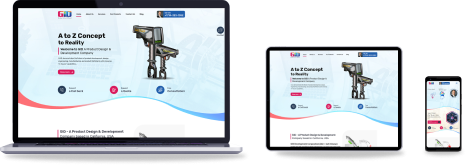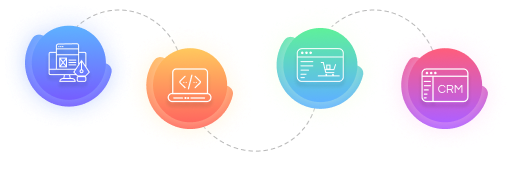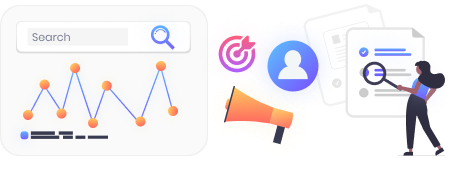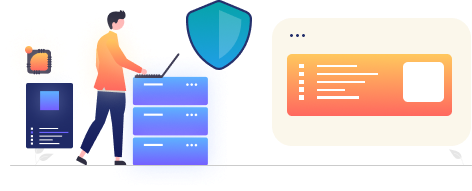
How to Choose the Right Web App Development Tools in 2025
Web app development is the process of creating applications that run on web browsers, allowing users to access them from any device with an internet connection. Unlike traditional software, which is installed directly on a user’s computer or mobile device, web apps are hosted on a web server and can be accessed through a browser. This has made web app development a crucial aspect of the digital world today. From e-commerce platforms and social media networks to productivity tools and entertainment services, web apps are now essential for businesses and individuals alike. They provide users with the convenience of accessing rich functionalities without the need for installations or device-specific software, making them increasingly popular in the modern digital landscape.
The importance of web app development in today’s digital age cannot be overstated. In an era where businesses are looking to reach a global audience, web apps offer the perfect solution. They can be accessed across devices and operating systems, ensuring businesses have a wider reach. Furthermore, as the demand for seamless, responsive, and user-friendly applications grows, businesses must continuously innovate and improve their web app offerings. This makes web app development not just a technical necessity but a key part of a company’s digital strategy. Whether it is for improving user experience, enhancing service delivery, or driving growth, web apps are at the core of modern business operations.
However, despite the clear benefits, web app development comes with its own set of challenges, particularly when it comes to selecting the right tools. In a world where technology is evolving rapidly, choosing the appropriate tools, frameworks, and technologies for a web app development project can be a daunting task. There are numerous options available, each catering to different project needs and requirements. For example, the choice of programming languages, frameworks, libraries, databases, and cloud services all play a significant role in the performance, scalability, and security of the application.
One of the key challenges in web app development is understanding which tools will best suit a project’s specific requirements. A business may need to build a simple content management system, a real-time communication platform, or a complex e-commerce site, each of which will have different technical demands. Furthermore, the rapid pace of change in the technology landscape means that tools that were once innovative may quickly become outdated. Deciding between newer technologies and established tools can be overwhelming for development teams, and using the wrong tools can lead to slower development, security vulnerabilities, and poor user experience.
The selection process is further complicated by the need to balance performance, security, and cost-efficiency. Developers must consider the scalability of their web app, the security protocols required to protect sensitive data, and the overall user experience. These factors, along with the complexity of the project, dictate whether to use a custom-built solution or rely on third-party services, such as cloud-based platforms and open-source tools.
This blog post is designed to help guide readers in making informed decisions about web app development. Whether you are a business looking to build a web app, a developer seeking the best tools, or someone exploring web app development services, this post will provide valuable insights. By focusing on the essential factors involved in selecting the right technologies and tools, we aim to make the decision-making process easier and more straightforward. As we move through this post, we will explore key considerations for choosing the right tools, trends in web app development, and best practices to follow. Our goal is to equip you with the knowledge you need to navigate the complexities of web app development and choose the best approach for your project.
Read Also: Top AngularJS Development Services from Your Offshore Partner
Key Factors to Consider When Choosing Web App Development Tools
When embarking on a web app development project, selecting the right tools is crucial to the app’s success. The development process involves a range of technical decisions that can significantly impact the functionality, performance, and longevity of the web application. The right tools can make development faster, more efficient, and more secure, while the wrong ones can result in delays, increased costs, and even project failure. There are several key factors to consider when choosing the appropriate tools for web app development, including the project’s requirements, the development team’s expertise, budget constraints, scalability, and security needs.
Hire Web App Developers?
Contact Us Today!Project Requirements
The first and most crucial factor when choosing tools for web app development is understanding the specific needs and complexity of the project. Every web app is unique, and the tools required to build it should align with its intended functionalities and scale. The complexity of the project will determine the choice of programming languages, frameworks, and databases. A simple blog or informational website may require fewer resources and less sophisticated tools than a complex e-commerce platform or social networking site that needs to manage a high volume of transactions and real-time interactions.
For example, if the web app requires advanced user interaction, real-time data updates, or integration with third-party services, tools like React or Angular for the front end and Node.js or Django for the back end may be ideal choices. Conversely, for simpler applications with static content or limited interactivity, lighter frameworks, or content management systems (CMS) like WordPress or Wax could suffice.
Understanding the scale of the project is also critical. A small startup or individual project might opt for lighter, more affordable tools, while a large-scale enterprise web app may need more robust, enterprise-grade solutions to ensure stability and performance under heavy user traffic.
Team Expertise
The skills and experience of the development team are another crucial consideration when selecting web app development tools. The success of the project often hinges on the proficiency of the team in using the chosen tools. Development teams should be comfortable with the languages, frameworks, and libraries they are expected to work with, as using unfamiliar tools can lead to inefficiency and increased development time.
For example, if the development team is experienced in JavaScript, opting for a JavaScript-based stack like the MERN stack (MongoDB, Express, React, Node.js) may be a logical choice, as it allows for seamless integration between front-end and back-end development. On the other hand, if the team has more experience with Python, frameworks like Django or Flask might be better suited to the project.
It is also important to ensure that the development team is familiar with the security practices and industry standards relevant to web app development. Some tools may have built-in security features, while others may require additional modules or integrations to meet security requirements. Choosing tools that align with the team’s skill set helps reduce learning curves and ensures the timely delivery of the project.
Budget Constraints
For many businesses, especially startups and small companies, budget constraints play a significant role in the selection of web app development tools. The costs associated with web app development can vary, depending on the tools, licenses, and services used. While some tools are open-source and free, others may require expensive licensing fees or subscriptions.
It is essential to consider the total cost of ownership, which includes not only the upfront licensing costs but also the ongoing costs associated with tool maintenance, updates, and support. For example, using a paid tool might increase initial costs, but it could save time and money overall by streamlining the development process. Conversely, free, or open-source tools might help reduce costs initially but may require more developer time to configure and maintain.
Startups and small businesses often have limited resources and may need to prioritize cost-effective solutions. There are several open-source frameworks and platforms that are widely used in web app development, such as WordPress for content management or Laravel for backend development, which can significantly reduce both development and operational costs. Additionally, cloud-based development environments and services like AWS, Google Cloud, or Microsoft Azure offer scalable solutions that allow businesses to only pay for what they use, which can be a cost-effective way to host and manage web apps.
Choosing web app development services that provide affordable and customizable solutions is also an option for smaller businesses that may not have an in-house development team. Many web app development companies offer packages suited to different budgets, enabling businesses to get high-quality applications without the high costs often associated with larger development firms.
Scalability
As businesses grow and user bases increase, scalability becomes a critical factor in web app development. It is essential to choose tools that not only meet the current needs of the application but also allow for future growth. Scalability refers to the ability of the web app to handle increased load, traffic, and data as it expands over time. Without scalability, businesses risk their web apps becoming slow, inefficient, or prone to crashes as traffic and user activity increase.
When choosing web app development tools, look for frameworks and technologies known for their scalability. For example, Node.js is popular for building high-performance, scalable applications that can handle a large number of concurrent connections, making it ideal for real-time applications. Similarly, cloud services like AWS and Google Cloud provide scalable infrastructure that can grow with your business, ensuring that you do not outgrow your web app’s capacity.
It is also important to consider the flexibility of the tools chosen. Some tools may have limitations on scaling, while others are designed specifically to manage a large number of users or complex data structures. Choosing tools that offer seamless scaling capabilities can future-proof the web app, ensuring that it can grow without major redevelopment or redesign.
Security
Security is one of the most critical factors in web app development. Web apps often store sensitive user data, such as personal information, financial details, and login credentials, making them prime targets for cyberattacks. Therefore, selecting tools that prioritize security is vital to protect user data and ensure compliance with industry standards and regulations.
When choosing web app development tools, ensure they offer strong security features such as data encryption, secure authentication, and vulnerability protection. Tools that are frequently updated to address emerging security threats are also necessary. Frameworks like Django and Ruby on Rails have built-in security features, such as protection against SQL injection and cross-site scripting (XSS), which can help prevent common attacks. Additionally, cloud hosting services like AWS and Google Cloud offer robust security options, including firewalls, intrusion detection systems, and encryption protocols.
It is also important to ensure that the chosen tools are compliant with relevant security standards and regulations, such as GDPR for data protection in the European Union or PCI-DSS for handling payment card data. Compliance with these standards ensures that the web app meets legal and industry requirements, which is crucial for building trust with users and avoiding costly fines.
Top Web App Development Tools for 2025
In the rapidly evolving world of web app development, selecting the right tools is crucial to ensuring that your project succeeds. With the ever-changing landscape of technology, developers must stay ahead of the curve by using tools that maximize productivity, scalability, and performance. In this post, we will explore some of the top web app development tools for 2025 across front-end development, back-end development, database management, and cloud platforms. Additionally, we will look at how Concept Infoway, a leading web app development company, can leverage these tools to provide exceptional web app development services.
Front-End Development Tools
React
React continues to dominate as one of the most popular front-end development frameworks. Developed and maintained by Facebook, React is known for its component-based architecture. This allows developers to build reusable components, which makes development faster, more modular, and easier to maintain. React’s virtual DOM enhances performance by reducing unnecessary updates to the real DOM, providing a smoother user experience. Reacts flexibility and efficiency make it a top choice for building dynamic, high-performance web apps.
For developers interested in web app development services, React’s large ecosystem of libraries and tools (such as React Router for navigation, Redux for state management, and Next.js for server-side rendering) ensures a well-rounded development experience. Additionally, React’s active community and comprehensive documentation make it an excellent choice for developers at any level. Its growing popularity among major companies, from startups to enterprises, is a testament to its power and versatility.
Angular
Angular is a comprehensive, full-featured framework for building dynamic web applications. Developed by Google, Angular offers two-way data binding, which ensures that any changes made in the user interface are reflected in the application’s data and vice versa. This simplifies the development process and reduces the amount of boilerplate code developers need to write.
Angular is ideal for enterprise-level applications due to its scalability, robust architecture, and built-in features, such as dependency injection, modularity, and form validation. For companies needing a web app development company capable of handling complex projects, Angular’s extensive tooling, integration with TypeScript, and emphasis on maintainability make it a solid choice for large-scale, feature-rich applications.
Also Read: Why Choose an Angular Development Company with Laravel Expertise?
Vue.js
Vue.js is a progressive front-end framework that is lightweight and flexible. One of its main advantages is its simplicity. Vue.js is easier to learn than Angular and React, which makes it an excellent choice for developers or teams working on smaller projects or startups. Despite its simplicity, Vue is highly versatile and can be integrated into larger applications as needed. This flexibility is why Vue has gained a lot of traction in recent years.
Vue.js allows for rapid web app development while maintaining excellent performance. It has a growing community, and the ecosystem around Vue is also expanding with libraries like Vue Router and Vuex. If you need a web app development company that can build clean, intuitive, and responsive interfaces without a steep learning curve, Vue.js is an excellent choice.
Back-End Development Tools
Node.js
Node.js is an open-source, event-driven, non-blocking I/O model that makes it highly efficient and scalable. As a back-end development tool, Node.js excels in handling multiple simultaneous connections with ease, making it ideal for applications that require real-time capabilities, such as messaging apps or collaborative tools. Node.js is particularly well-suited for full-stack web app development, enabling developers to use the same language (JavaScript) for both the front-end and back-end, resulting in faster development cycles and a more streamlined development process.
Due to its asynchronous nature and vast ecosystem of libraries (NPM), Node.js allows developers to build high-performance web apps quickly and with less resource consumption. For businesses looking for web app development services that can manage high traffic and deliver robust performance, Node.js offers significant advantages.
Django
Django is a high-level Python framework that encourages rapid development and clean, pragmatic design. Its batteries-included philosophy provides a plethora of built-in features, including authentication, database management, and routing, which significantly reduces development time. Django’s emphasis on security ensures that developers follow best practices when it comes to preventing common security issues, such as SQL injection and cross-site scripting (XSS).
Django is an excellent choice for secure web app development, and its ability to scale makes it suitable for projects ranging from small web apps to complex, data-heavy applications. Additionally, Django’s active community ensures continuous improvement and support, making it an ideal tool for businesses seeking web app development services that prioritize security and speed.
Ruby on Rails
Ruby on Rails, often referred to as Rails, is a full-stack web development framework that follows the principle of convention over configuration. This means developers can focus on writing code specific to their app’s features, without having to worry about repetitive configuration tasks. Rails emphasizes productivity, allowing developers to deliver web apps quickly while maintaining clean and readable code.
The elegant syntax and large set of built-in tools make Rails a popular choice for startups looking to launch MVPs (Minimum Viable Products) in a short timeframe. It is an excellent choice for developers seeking to build applications quickly and efficiently. Whether building a social network or an e-commerce platform, web app development companies often turn to Ruby on Rails for its rapid development capabilities.
Also Read: Ruby on Rails Development for Secure and High Performance Web Solutions
Database Tools
MySQL
MySQL is one of the most widely used relational database management systems (RDBMS), renowned for its reliability and performance optimization features. It is an open-source solution, meaning businesses can leverage MySQL without the burden of licensing fees. MySQL supports complex queries and has excellent integration with other tools and technologies, making it suitable for a wide range of web applications.
For businesses seeking web app development services that rely on structured data storage and fast data retrieval, MySQL is a proven and trusted choice. Its ACID compliance ensures that data transactions are managed securely, which is crucial for applications that require high data integrity.
PostgreSQL
PostgreSQL is an open-source object-relational database management system (ORDBMS) that is highly regarded for its advanced features and robustness. It supports complex queries and a variety of data types, including JSON, XML, and hstore, making it ideal for web apps that require flexible data storage. PostgreSQL also boasts strong security features and compliance with industry standards, making it an excellent choice for businesses dealing with sensitive data.
PostgreSQL’s support for full-text search, custom data types, and sophisticated indexing techniques allows developers to create highly performant and scalable web apps. For companies looking for web app development services that can manage complex data relationships and transactions, PostgreSQL provides a solid foundation.
MongoDB
MongoDB is a NoSQL database that stores data in a flexible, JSON-like format. It is highly scalable and can manage large volumes of unstructured data, making it an excellent choice for web apps that require fast performance and flexible data models. MongoDB’s document-oriented approach allows developers to store data without predefined schemas, offering greater flexibility than traditional relational databases.
MongoDB is a top choice for building data-intensive web apps with requirements for scalability and flexibility, such as social networks or e-commerce platforms. Its ability to manage diverse data types makes it one of the most popular tools for modern web app development.
Cloud Platforms
AWS (Amazon Web Services)
AWS is a comprehensive suite of cloud services that includes compute power, storage, networking, and machine learning, among others. It is known for its scalability and global infrastructure, offering solutions to meet the needs of businesses of all sizes. AWS’s vast array of services, including EC2 (Elastic Compute Cloud), Lambda (serverless computing), and RDS (Relational Database Service), makes it an excellent choice for hosting, managing, and scaling web applications.
For companies that require web app development services with a global reach, AWS provides the necessary tools and infrastructure to deploy and scale apps anywhere. Its pay-as-you-go model allows businesses to scale up or down as needed, making it an efficient and cost-effective option.
Azure
Microsoft Azure is a cloud computing platform that offers both public and hybrid cloud solutions. It is particularly beneficial for businesses that use Microsoft products like Office 365, SQL Server, and Windows Server, as Azure provides seamless integration with these tools. Azure’s enterprise-grade security, along with its global data centers, ensures that web applications can run securely and efficiently.
Azure’s hybrid cloud capabilities make it an ideal choice for businesses that need a mix of on-premise and cloud solutions. For businesses seeking a web app development company with expertise in integrating web apps into Azure’s ecosystem, this platform is a top choice.
Google Cloud Platform (GCP)
Google Cloud Platform (GCP) is another powerful cloud computing platform that excels in machine learning, AI capabilities, and data analytics tools. GCP’s serverless computing services, such as Google Cloud Functions and Google Kubernetes Engine (GKE), allow developers to build scalable, cost-effective applications with minimal infrastructure management.
For companies seeking web app development services that incorporate advanced machine learning or data processing capabilities, GCP offers a wide range of tools to meet these needs.
Read Also: Why Choose a MERN Stack Development Company for Mobile Apps?
Why Choose Concept Infoway for Web App Development?
Expertise and Experience
With years of experience in web app development, Concept Infoway is a trusted web app development company known for delivering high-quality, scalable, and secure web applications.
Customized Solutions
Concept Infoway offers tailored solutions to meet the unique needs of each client. By leveraging innovative tools and technologies, the company ensures that every web app is optimized for performance and user experience.
Innovative Technologies
Concept Infoway stays at the forefront of web development by utilizing the latest tools and technologies to create innovative web apps that exceed client expectations.
Agile Development Methodology
Using agile practices, Concept Infoway ensures that projects are delivered on time and within budget, while maintaining flexibility to adapt to changing requirements.
Quality Assurance
Rigorous testing and quality control processes ensure that every web app developed by Concept Infoway is secure, functional, and high-performing.
Client Success Stories
With numerous successful projects and happy clients, Concept Infoway has a proven history of delivering exceptional web apps across industries.
Conclusion
In today’s fast-paced digital world, choosing the right tools for web app development is crucial to creating high-performance, scalable, and secure applications. From front-end development tools like React, Angular, and Vue.js, to back-end technologies like Node.js, Django, and Ruby on Rails, businesses have a wealth of options available. Similarly, cloud platforms like AWS, Azure, and Google Cloud offer robust infrastructure for hosting and scaling web apps. For businesses seeking expert web app development services, Concept Infoway stands out as a top web app development company, providing innovative solutions that meet client needs and exceed expectations. Contact Concept Infoway today to turn your web app vision into reality!
Frequently Asked Questions – FAQs
How can a custom web application help grow your business?
A custom web application can play a pivotal role in growing your business by streamlining processes, improving customer engagement, and providing tailored solutions to meet your business goals. Unlike off-the-shelf software, a custom web app is built to fit your specific needs, enabling you to optimize workflows, increase efficiency, and automate tasks. By offering unique features that align with your business model, it can enhance customer experience, increase productivity, and support scalability as your business expands. Custom web apps also allow you to collect and analyze valuable data, leading to better decision-making and more targeted marketing efforts. A custom web application can help you gain a competitive edge, improve operations, and foster long-term growth.
How to develop an app for business?
Developing an app for your business involves a structured approach. The first step is to define your business objectives and identify the core functionality your app needs to achieve. Whether it is improving customer engagement, providing an online store, or streamlining internal processes, understanding your goals will guide the development process. Next, you will need to choose the right technology stack based on your app’s needs, such as selecting between a native app or a web app.
Once the technical groundwork is laid, move on to design and prototyping, ensuring that the user experience (UX) and user interface (UI) are intuitive and appealing. Afterward, the development phase begins, including front-end (how users interact with the app) and back-end (server-side logic and databases). Finally, rigorous testing is essential to ensure the app works seamlessly, followed by deployment and maintenance. Working with an experienced app development company can help streamline this process and ensure the app is developed with scalability, security, and future updates in mind.
What does web application development do?
Web application development is the process of building interactive, dynamic software applications that run on web browsers rather than being installed on users’ devices. It involves both front-end and back-end development to ensure that the app is user-friendly, secure, and functional. Front-end development focuses on the parts of the app that users interact with, such as buttons, menus, and the overall design, while back-end development involves server-side logic, databases, and APIs that make the app work.
Web application development allows businesses to create solutions that offer rich user experiences, real-time data processing, and seamless integration with other services. Whether for e-commerce, customer support, or project management, web applications are powerful tools for improving business efficiency, enhancing user interaction, and streamlining operations.
What is an app development business?
An app development business is a company or agency that specializes in designing, building, and maintaining mobile and web applications. These businesses collaborate with clients from various industries to develop custom apps that address specific business challenges or needs. App development businesses offer a range of services, including strategy, design, user experience (UX), development, testing, and maintenance. They often use modern programming languages and frameworks to ensure that the apps are scalable, secure, and optimized for performance. Whether it is building an app for e-commerce, internal tools, or customer engagement, an app development business brings expertise in creating solutions that meet the client’s objectives while enhancing user satisfaction.
Which is more important, web development or app development?
The importance of web development versus app development depends on the nature of your business and your goals. Web development primarily involves creating websites and web applications that are accessed through a browser, making it ideal for businesses aiming to provide content, services, or information to a broad audience. On the other hand, app development focuses on creating mobile or desktop applications that provide more personalized, user-centric experiences, often with offline capabilities and push notifications. If your target audience is mobile-centric or your business requires an elevated level of interactivity, then app development might be more important. However, if your goal is to reach a broader audience across various platforms, then web development should take precedence. Many businesses, however, benefit from using both, creating a complementary ecosystem of web and app solutions.
What is the difference between web development and web application development?
The primary difference between web development and web application development lies in the complexity and functionality. Web development refers to the creation of websites, which can be static (providing information) or dynamic (updating content based on user input). Web development focuses on design, user interface (UI), and the integration of content to create an online presence.
Web application development, however, involves creating dynamic, interactive platforms where users can perform specific tasks like making transactions, managing data, or collaborating. Web apps usually involve complex logic and database interactions, offering features such as real-time updates, multi-user access, and secure data processing. While web development is about building websites, web application development is about creating fully functional online platforms with interactive elements and user-specific features.
Does having an app increase sales?
Yes, having an app can increase sales, especially when it is well-designed and provides real value to customers. Apps can offer a more personalized experience for users, whether through push notifications, targeted offers, or streamlined purchasing processes. Mobile apps allow businesses to engage customers directly, improving retention and encouraging repeat purchases by offering easy access to your products or services. Apps also provide valuable data on customer preferences and behaviors, enabling businesses to refine their marketing strategies and make more informed decisions. By offering convenience, improved customer service, and loyalty programs, apps create a seamless shopping experience that can lead to higher sales and enhanced customer satisfaction.
Conclusion
In today’s fast-paced digital world, choosing the right tools for web app development is crucial to creating high-performance, scalable, and secure applications. From front-end development tools like React, Angular, and Vue.js, to back-end technologies like Node.js, Django, and Ruby on Rails, businesses have a wealth of options available. Similarly, cloud platforms like AWS, Azure, and Google Cloud offer robust infrastructure for hosting and scaling web apps. For businesses seeking expert web app development services, Concept Infoway stands out as a top web app development company, providing innovative solutions that meet client needs and exceed expectations. Contact Concept Infoway today to turn your web app vision into reality!

How to Choose the Right Offshore Development Companies in 2026













